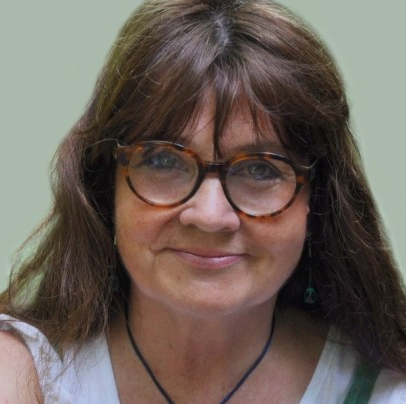Dolors Vinyoles: "The transfer of knowledge contributes to the rapprochement between humans and nature"
Last May 27, La Xarxa published an interview with Dolors Vinyoles, Vice Dean of Research and Transfer at the University of Barcelona and member of the Biodiversity Research Institute. The news echoes his involvement in the Besòs River Renaturalization Project in Santa Coloma de Gramenet, an initiative that seeks to reverse environmental degradation through scientific, citizen and institutional collaboration.
A Pioneering Renaturalization of the Riu Besòs
The Faculty of Biology of the University of Barcelona, in collaboration with the City Council of Santa Coloma de Gramenet, is carrying out a project to renaturalize the Besòs river. It is a pioneering strategy that shows how cooperation between the university, public institutions and citizens is essential for the recovery of the biodiversity of Catalonia's natural environments. In addition, it is a paradigmatic example of the benefits of investing in the transfer of knowledge from universities.
Dolors Vinyoles Cartanya, Vice Dean of Research and Transfer at the Faculty of Biology, associate professor and researcher at the Biodiversity Research Institute of the UB, explains the keys to the project and underlines its ability to bring the administration, citizens into dialogue and the research, academic and university field, and the benefits it entails.
Birth and Development of the Project
In 2018, Santa Coloma de Gramenet City Council launched the Biodiversity Refuge project, protecting part of the river bed to encourage the self-regeneration of the river ecosystem. This initiative evolved into the Renaturalization Project 2020-2027, financed by the European Next Generation Funds and other local sources.
The global project consists of actions along 3 km of river, combining three basic pillars: the recovery of biodiversity, public science dissemination actions and environmental education. Its objectives include improving ecological connectivity, supporting the European eel population, recovering lagoon habitats, reducing invasive species and creating an educational space.
The first phase, started in 2022, created a biodiversity refuge in the River Park between Pont Vell and Can Zam, with the construction of three lagoons and the planting of more than 1,500 specimens of native flora. Currently, it is in the second phase, which involves the creation of an ecological connector and the planting of more than 17,000 specimens of vegetation, as well as new habitat lagoons.
Dolors Vinyoles emphasizes that renaturation allows the spontaneous recovery of ecosystems, freeing them from human pressures. In addition, the transfer of knowledge contributes to an essential rapprochement between humans and nature, essential for the future protection of ecosystems.
Citizen and Educational Participation
The project promotes collaboration between citizens, political leaders, professionals and scientists. Since March 2023, nearly 2,000 people have participated in program activities, including visits to the Biodiversity Refuge and other scientific dissemination actions.
For students, participating in this project means more than technical learning; it is a source of hope for facing future environmental challenges. Involvement in renaturation projects provides a positive and practical insight into how research and collaboration can generate a real impact on improving biodiversity.
The Besòs river renaturation project is a model to follow for other rivers under human pressure. With nature-based solutions, this project not only improves river ecosystem resilience to climate change, but also serves as an example of how the integration of scientific knowledge and community engagement can transform our natural environments for future generations.
Source: Dolors Vinyoles: “La transferència de coneixement contribueix a l’apropament entre humans i natura.” (2024). Retrieved from https://xarxanet.org/ambiental/noticies/dolors-vinyoles-la-transferencia-de-coneixement-contribueix-lapropament-entre
